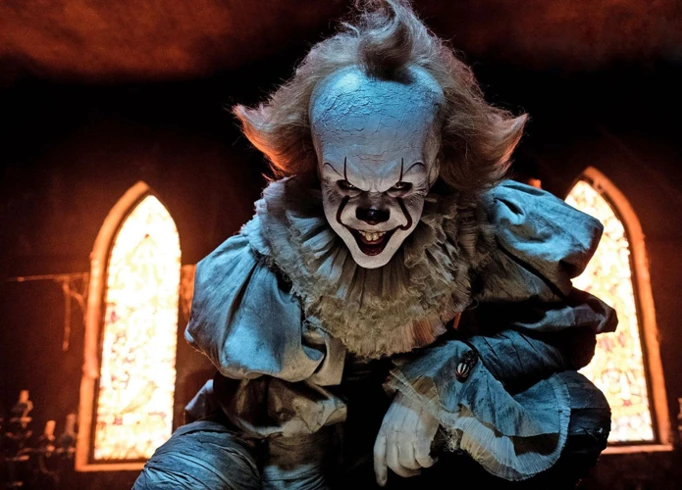Have you recently had a dream about clowns? If so, you might find yourself pondering the meaning behind this unusual and intriguing imagery. Clowns have long been symbols of both joy and fear, evoking a range of emotions and interpretations. In this article, we will delve into the symbolism of clowns in dreams, explore various interpretations from psychological perspectives, and examine common themes and variations in clown-related dreams. By understanding the possible meanings and implications of dreaming about clowns, we hope to shed some light on this enigmatic nocturnal experience.
The Symbolism of Clowns
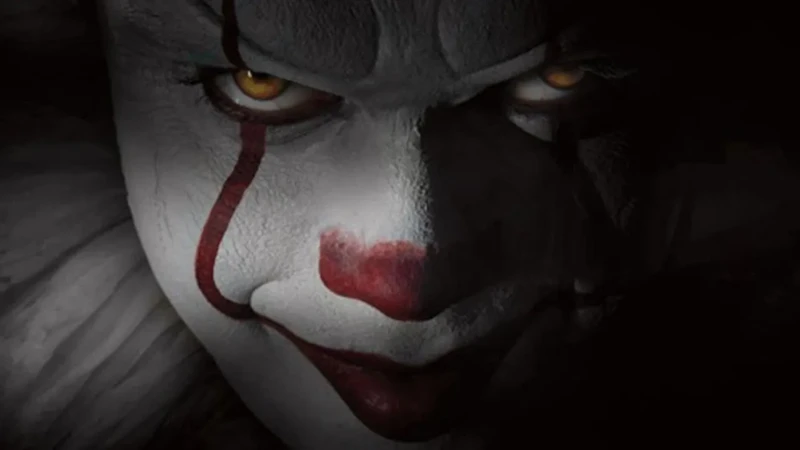
Clowns hold significant symbolism in the realm of dreams. They can represent a variety of themes and emotions, ranging from fear and anxiety to nostalgia and playfulness. The multifaceted nature of clowns allows them to serve as powerful symbols in our subconscious minds. In dreams, clowns often embody a sense of duality, representing both laughter and tears, joy and sadness. They can act as a reflection of our own inner conflicts and contradictions. Clowns may also be associated with the concept of masks, symbolizing how we present ourselves to the world. The unpredictable nature of clowns can signify the uncertainty and unpredictability of life itself. Exploring the symbolism of clowns in dreams can provide valuable insights into our own psyche and subconscious desires.
Origin and History of Clowns in Dreams
The origin and history of clowns in dreams can be traced back to ancient civilizations and folklore. Throughout history, clowns have played various roles in different cultures, often representing contrasting emotions and concepts. In ancient Greek and Roman culture, clowns were seen as comedic entertainers who used humor to bring joy and laughter to people. In medieval times, court jesters were employed to entertain the nobility with their witty remarks and antics. These historical depictions of clowns have influenced the way they are perceived in dreams, where they can appear as playful tricksters, foolish jesters, or even eerie and menacing figures. Exploring the origin and history of clowns in dreams allows us to understand their cultural significance and the impact they have on our subconscious mind. Learn more about the meaning of dreams here.
Depictions of Clowns in Media and Culture
Clowns have been prominent figures in various forms of media and culture, adding layers to their symbolism in dreams. In movies, clowns are often portrayed as either comedic entertainers or sinister figures, exemplifying the dichotomy of their nature. Characters like Pennywise from Stephen King’s “It” or the Joker from Batman comics and films can evoke feelings of fear and dread. These depictions tap into the common fear known as coulrophobia, which is the fear of clowns. On the other hand, clowns in children’s entertainment, such as Ronald McDonald or Bozo, are associated with joy, laughter, and innocence. In circus performances, clowns use physical comedy and exaggerated gestures to captivate audiences and bring smiles to their faces. These varied portrayals of clowns in media and culture contribute to the richness of their symbolism in dreams.
Dream Analysis: Clown-Related Interpretations
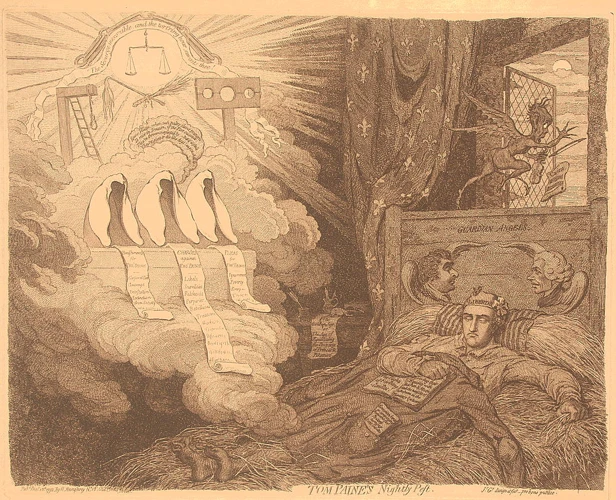
Dream analysis plays a crucial role in understanding the implications of dreaming about clowns. The interpretation of clown-related dreams can vary depending on personal experiences and cultural influences. One common interpretation is rooted in fear and anxiety. Clowns are often associated with unsettling and creepy images, which may indicate underlying fears and insecurities in one’s waking life. These dreams could be a reflection of the individual’s emotions of being overwhelmed or threatened. On the flip side, clowns can also represent the jester archetype, symbolizing tricksters and fools. In this context, clown dreams may suggest a need to embrace humor, spontaneity, and a more carefree approach to life. Additionally, dreaming about clowns can evoke childhood memories and nostalgia, as they are often related to circus performances and entertainment. Exploring these different interpretations can provide valuable insights into the deeper meaning and symbolism behind clown-related dreams.
Fear and Anxiety Associated with Clowns
Fear and anxiety are commonly associated with clowns in dreams. Many people have a deep-seated fear of clowns, known as coulrophobia, which can manifest in their dream experiences as well. The exaggerated features, painted faces, and unpredictable behavior of clowns can tap into our primal fears and triggers. In dreams, clown-related fear may reflect feelings of unease, vulnerability, or a threat to one’s safety. These dreams could be connected to past experiences, cultural influences, or even childhood memories associated with clowns. It’s important to recognize that these fears are subjective and vary from person to person. Exploring the underlying reasons behind fear and anxiety associated with clowns in dreams can offer personal insight and potential avenues for healing and overcoming these phobias.
The Jester Archetype: Tricksters and Fools
The presence of clowns in dreams often taps into the archetype of the jester, a figure historically known for their humor, wit, and trickery. The jester archetype represents the balance of light-heartedness and profundity, as well as the ability to bring laughter and joy even in challenging times. In dream symbolism, clowns as jesters can highlight the importance of humor and playfulness in navigating through life’s ups and downs. They may also act as reminders to not take ourselves too seriously and to embrace the unexpected twists and turns that come our way. The jester archetype can serve as a powerful symbol for embracing the paradoxes and ambiguities of life. By embodying the trickster and fool, clowns in dreams may provide opportunities for self-reflection and personal growth.
Exploring Childhood Memories and Nostalgia
Dreaming about clowns can often evoke a sense of nostalgia and bring forth childhood memories. Clowns are commonly associated with amusement and entertainment, which may stir up feelings of joy and innocence from our early years. These dreams may serve as reminders of a simpler time, when life was filled with wonder and playfulness. Our subconscious mind may use clown imagery to reconnect us with forgotten or repressed memories, inviting us to explore and reflect on the experiences and emotions of our youth. It is a chance to revisit the carefree nature of childhood and examine how those memories may still influence us in our present lives. Through these dreams, we have an opportunity to tap into the depth of emotions and associations tied to our past, allowing for personal growth and self-discovery.
Psychological Perspectives: Possible Explanations
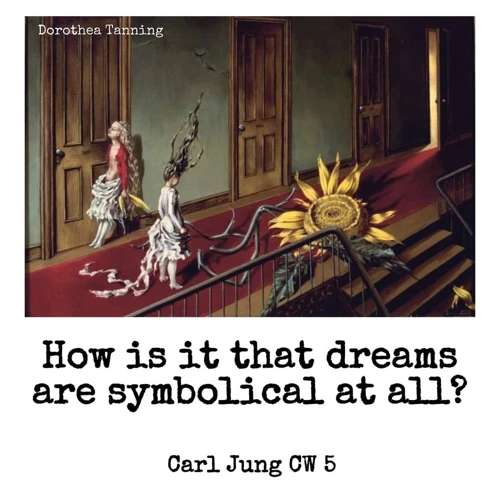
When analyzing dream about clowns from a psychological perspective, several possible explanations emerge. One Freudian interpretation suggests that clowns represent the manifestation of unconscious desires and repressed emotions. They may serve as symbolic figures for aspects of our psyche that we may not fully understand or acknowledge. A Jungian approach sees clowns as symbols of the shadow self, representing the hidden or rejected parts of our personality. This interpretation emphasizes the need to integrate these aspects into our conscious awareness. Additionally, from a cognitive standpoint, clown dreams can be influenced by cognitive biases and perception, such as the framing effect or the availability heuristic. These biases can shape our dream experiences and the way we interpret them. By exploring the various psychological perspectives, we can gain a deeper understanding of the possible meanings behind dreaming about clowns.
Freudian Interpretation: Unconscious Desires and Repressed Emotions
In the realm of dream analysis, Freudian interpretation offers insights into the meaning of clown-related dreams. According to Sigmund Freud, dreams serve as a pathway to the unconscious mind, where repressed desires and emotions reside. In this context, clowns may represent suppressed feelings or hidden desires that we may not be aware of in our waking life. The clown’s exaggerated emotions and behavior can symbolize the release of pent-up emotions, providing a cathartic outlet for our unconscious desires. Freudian analysis suggests that exploring the presence of clowns in our dreams can unveil hidden aspects of our psyche and offer a deeper understanding of our innermost thoughts and motivations. By examining the symbolism of clowns through a Freudian lens, we can gain valuable insights into our unconscious desires and repressed emotions.
Jungian Approach: Symbolism and the Shadow Self
From a Jungian perspective, the presence of clowns in dreams can be associated with the concept of the shadow self. The shadow self represents the repressed or hidden aspects of our personality that we may not fully acknowledge or accept. Clowns, with their exaggerated and often unpredictable behavior, can symbolize the parts of ourselves that we try to keep hidden – the side that is playful, mischievous, or even dark. Dreams about clowns may be an invitation to explore and integrate these shadow aspects of ourselves. By confronting and embracing the clown within, we can gain a deeper understanding of our own complex nature. This process of self-discovery and acceptance can be both challenging and transformative, leading to personal growth and psychological wholeness. To learn more about the significance of dream interpretation, you can read our article on “What Does It Mean When You Dream About Being Eaten Alive?“.
Cognitive Interpretations: Cognitive Biases and Perception
Cognitive interpretations of dreams involving clowns focus on the role of cognitive biases and perception in shaping our dreams. Our mind’s tendency to interpret ambiguous or unfamiliar stimuli through preexisting beliefs and experiences can influence the way clowns are portrayed in our dreams. For example, if we have a negative preconception of clowns or have been exposed to frightening clown imagery in the media, our dreams may incorporate those fears and anxieties. Similarly, our perception of clowns as tricksters or entertainers can influence the narrative and tone of our dreams. These cognitive biases, coupled with our personal experiences and beliefs, shape the way clowns are perceived in our dream world. Understanding the role of cognitive biases can provide insight into the unique interpretations we assign to clown-related dreams.
Common Themes and Variations in Clown Dreams
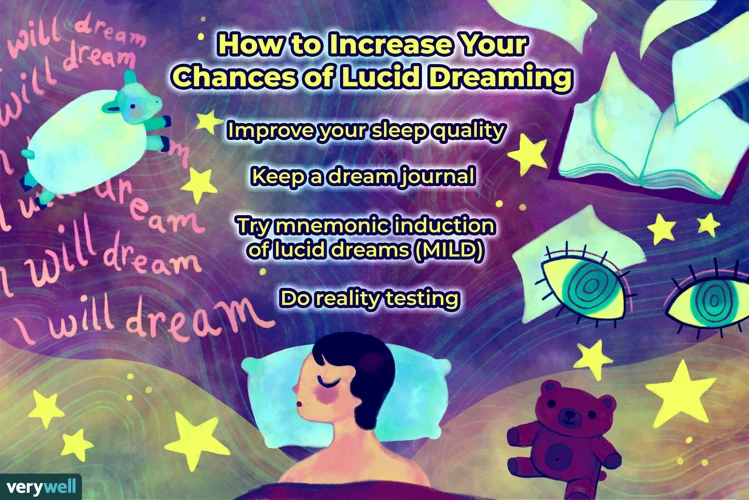
Clown dreams can manifest in various themes and variations, each offering unique insights into our subconscious. One common theme is encountering clowns that chase or threaten us. These dreams may reflect feelings of fear, vulnerability, or a sense of being pursued in waking life. On the other hand, some clown dreams present scenarios where clowns perform or entertain. These dreams often symbolize the desire for joy, light-heartedness, or the need for entertainment in our lives. Additionally, there are dreams where individuals interact with clowns in neutral or positive ways. These dreams can indicate a potential for personal growth, overcoming fears, or embracing our playful and carefree nature. Exploring the different themes and variations in clown dreams can help unravel their deeper meanings and provide valuable insights into our subconscious desires and fears.
Clowns Chasing or Threatening You
Clowns chasing or threatening you in dreams can be an intense and unsettling experience. These dreams often reflect feelings of fear, vulnerability, or a sense of being pursued or attacked in waking life. The clown’s exaggerated features and unpredictable behavior can heighten the sense of danger and unease. It’s essential to consider the specific context and emotions within the dream to gain a deeper understanding of its meaning. For some individuals, this dream theme may be linked to past traumas or experiences of being pursued or threatened. Exploring these fears and seeking support from professionals or therapists can help in addressing and processing these emotions. Understanding the symbolism behind clowns chasing or threatening you in dreams can lead to valuable insights about hidden anxieties and the need to confront and overcome them.
Clowns Performances or Entertaining
In dreams, clowns often take on the role of performers and entertainers, captivating audiences with their comedic acts and antics. These dreams may reflect our own desires for attention and validation, or they could indicate a need for lightheartedness and laughter in our waking lives. Clown performances can also symbolize the importance of embracing our playful and creative sides. In some instances, dreaming of clown performances may allude to the idea of masks and hidden identities, suggesting that we may be putting on a facade or entertaining others to mask our true selves. Exploring the meaning behind these dream scenarios can provide valuable insights into our own need for self-expression and the role we play in the lives of those around us.
Interacting with Clowns in Neutral or Positive Ways
Interacting with clowns in neutral or positive ways within dreams can reveal various meanings and emotions. These dreams often reflect a sense of amusement, entertainment, or even camaraderie. The presence of friendly clowns may indicate an opportunity for lightheartedness and joy in your waking life. It could suggest a need for playfulness or a reminder to not take things too seriously. Interacting with clowns in a positive manner can also symbolize the acceptance of your own flaws and imperfections, embracing the lighter side of your personality. These dreams can serve as a gentle reminder to find moments of laughter and levity amidst the challenges of life. Embracing the joy and whimsy that clowns represent can bring about a sense of childlike wonder and rejuvenation.
How to Reflect and Understand Your Clown Dreams
Reflecting on and understanding your clown dreams can be a valuable way to gain insights into your subconscious mind. One effective approach is to keep a dream journal, recording your dreams immediately upon waking. Pay attention to the emotions, symbols, and interactions within the dream, focusing specifically on the clowns and their actions. Look for patterns or recurring themes that may offer further clues to their meaning. Additionally, consider seeking the help of a professional dream interpreter or therapist who can provide guidance and support in exploring the deeper implications of your clown dreams. By taking the time to analyze and reflect on your dreams, you can unlock valuable insights and gain a deeper understanding of your psyche.
Dream Journaling and Interpretation Techniques
Dream journaling is a powerful technique that can help you delve deeper into the meaning of your clown-related dreams. By keeping a journal dedicated to recording and analyzing your dreams, you can start to identify patterns, symbols, and emotions that arise in your clown dreams. Make it a habit to write down your dreams as soon as you wake up, capturing as many details as possible. Pay attention to any specific interactions, emotions, or visual elements in the dream. Reflecting on your dreams over time may reveal recurring themes or symbols, helping you gain a better understanding of what the clowns represent in your subconscious. Additionally, there are various interpretation techniques that you can employ to unlock the meaning of your dreams. These techniques can include free association, where you jot down any thoughts or words that come to mind when you think about the clown dream, or dream analysis exercises such as drawing the dream or discussing it with a trusted friend or therapist. Engaging with your dreams through journaling and interpretation techniques can provide valuable insights into your inner self and the messages your subconscious is trying to convey.
Seeking Professional Help and Insight
If you find yourself deeply intrigued or disturbed by your dreams about clowns, it may be beneficial to seek professional help and insight. Dream analysis can be a complex process, and trained professionals such as therapists or psychologists can provide valuable guidance. They can help you explore the underlying emotions, fears, or unresolved conflicts that may be manifesting in your clown-related dreams. By delving into your subconscious mind with the help of a professional, you can gain a deeper understanding of yourself and uncover any hidden meanings behind these dreams. Don’t hesitate to reach out to a professional if you feel that your dreams about clowns are significantly impacting your well-being or causing distress.
Conclusion
In conclusion, it’s important to recognize that the interpretation of dreams, including those involving clowns, is highly subjective. The symbolism of clowns can vary greatly depending on personal experiences, cultural background, and individual perceptions. While exploring the possible meanings behind clown dreams can be insightful, it’s crucial to remember that dreams are complex and multifaceted. If you find yourself consistently having recurring or distressing dreams about clowns, it may be worth considering seeking professional help or guidance from a therapist or dream analyst. Understanding the deeper meanings of our dreams can provide us with valuable insights into our own subconscious minds and emotional well-being. (For more information on other types of dreams, you can read about dreams involving being drugged by someone else or dreams of being raped in Islam.)
Frequently Asked Questions
1. Why do clowns often provoke fear and anxiety?
Clowns can trigger fear and anxiety due to their exaggerated features, unpredictable behavior, and the hidden identity behind their masks. This unsettling combination can tap into our innate fear of the unknown and the uncanny.
2. Are clown dreams always negative?
No, clown dreams can have both positive and negative connotations. The interpretation of a clown dream largely depends on the context, emotions experienced, and personal associations with clowns.
3. What do clown dreams say about our childhood memories?
Clown dreams can tap into our childhood memories and nostalgia, reminding us of fun and entertaining experiences from our past. They may also bring forth unresolved fears or traumas associated with clowns during our formative years.
4. Can the symbolism of clowns vary across different cultures?
Yes, the symbolism of clowns can vary across cultures. While clowns are often associated with joy and entertainment in Western cultures, they may carry darker and more sinister connotations in other cultures, reflecting cultural beliefs and folklore.
5. How can dream journaling help in understanding clown dreams?
Dream journaling involves recording and analyzing your dreams in a journal. By keeping a record of your clown dreams, you can identify patterns, emotions, and symbols that may provide insight into your subconscious thoughts and feelings.
6. Is there a deeper meaning behind clowns chasing or threatening dreams?
Dreams of clowns chasing or threatening you may symbolize a sense of being pursued or overwhelmed by hidden fears or anxieties in your waking life. It could be a manifestation of unresolved issues or a need to confront and overcome obstacles.
7. Can seeking professional help be beneficial when experiencing recurring clown dreams?
Yes, if you are consistently bothered or confused by recurring clown dreams, seeking professional help from a therapist or dream analyst can provide valuable insights and guidance in understanding the deeper psychological meanings behind these dreams.
8. Why do some people find clowns to be entertaining and enjoyable?
For some individuals, clowns evoke a sense of joy, amusement, and nostalgia. The playful nature of clowns, coupled with their ability to create laughter and entertainment, can be appealing and bring feelings of happiness and positivity.
9. Can cognitive biases influence the interpretation of clown dreams?
Yes, cognitive biases such as personal beliefs, cultural conditioning, and prior experiences can influence the interpretation of clown dreams. It’s important to approach dream analysis with an open mind and consider multiple perspectives.
10. Should clown dreams be taken literally or metaphorically?
Clown dreams should generally be interpreted metaphorically, as they are symbolic representations of our subconscious thoughts, emotions, and experiences. It is essential to explore the underlying meanings and emotions associated with the clowns in our dreams rather than taking them literally.
